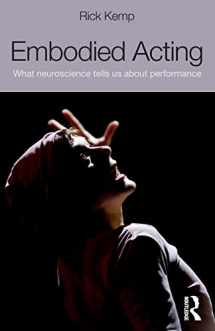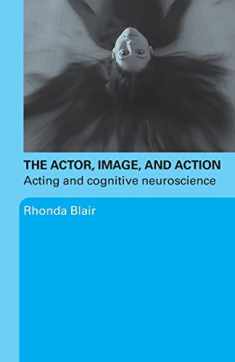
Embodied Acting: What Neuroscience Tells Us About Performance
Book details
Summary
Description
‘A focus on the body, its actions, and its cognitive mechanisms identifies ... foundational principles of activity that link the three elements of theatre; Story, Space, and Time. The three meet in, are defined by, and expressed through the actor’s body.’ – from the Introduction
Embodied Acting is an essential, pragmatic intervention in the study of how recent discoveries within cognitive science can – and should – be applied to performance. For too long, a conceptual separation of mind and body has dominated actor training in the West. Cognitive science has shown this binary to be illusory, shattering the traditional boundaries between mind and body, reason and emotion, knowledge and imagination. This revolutionary new volume explores the impact that a more holistic approach to the "bodymind" can have on the acting process.
Drawing on his experience as an actor, director and scholar, Rick Kemp interrogates the key cognitive activities involved in performance, including:
- non-verbal communication
- the relationship between thought, speech, and gesture
- the relationship between self and character
- empathy, imagination, and emotion.
New perspectives on the work of Stanislavski, Michael Chekhov, and Jacques Lecoq – as well as contemporary practitioners including Daniel Day-Lewis and Katie Mitchell – are explored through practical exercises and accessible explanations. Blending theory, practice, and cutting-edge neuroscience, Kemp presents a radical re-examination of the unconscious activities engaged in creating, and presenting, a role.


We would LOVE it if you could help us and other readers by reviewing the book
Book review




